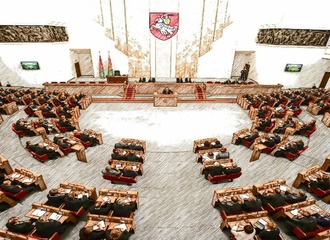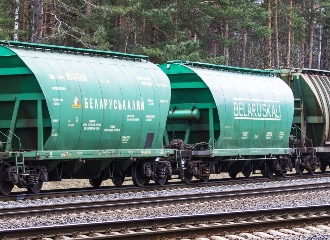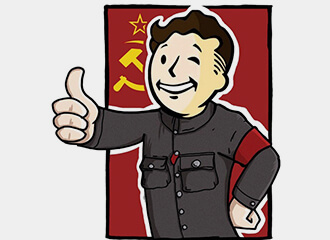На русском языке:
Мнение. Андрей Елисеев о БССР-2, «Союзных программах» и эрозии суверенитета Беларуси
Andrei Yeliseev , a political analyst and investigative journalist wrote a long article about the BSSR-2, «Union Programs» and the erosion of the sovereignty of Belarus. Here are his words unchanged.
Minsk and Moscow’s endorsement of «allied programs» embodies the very negative scenario that has been hovering over Belarus over the past three years, since Medvedev’s infamous «ultimatum». Faced with the dilemma of being overthrown by a wave of popular anger or sacrificing a meaningful piece of national sovereignty for the sake of his political survival, Lukashenka predictably chooses the latter.
The Kremlin no less predictably uses the situation to dictate further metered support and ensure the transformation of Belarus into the BSSR-2. There are no «little green men» or other obvious encroachments on the territorial integrity of the country – there is a methodical absorption of Belarusian independence in domestic and international affairs with the filing of a little-popular ruler and his Kremlin partners.
Amid an unprecedentedly low rating and mass protests, in order to receive the necessary dose of Russian political and financial support, Lukashenka over the past year had to surrender sovereignty in several areas at once.
The first, in the informational one – since September 2020, all significant messages of the state media are in the system of the Kremlin propaganda. Most of the commentators of the Belarusian events on state TV are no longer even local talking heads, but propagandists of Russian and Ukrainian origin, who for years frightened the post-Soviet audience with «Bandera». Last year, they abruptly became «experts» on Belarus and switched to discrediting «zmagars» [Belarusian opposition –ed.].
The second, since last year, Belarus has rapidly lost the remnants of independence in foreign policy and the defense sphere. The highest state officials even proposed to remove the wording about the desire for neutrality from the constitution. The key foreign policy partners of the country, in addition to Russia, remained China, the Central Asian states and the Persian Gulf countries.
The third, via the approval of the «union programs», Belarus is planned to be radically transferred to Russian legal and institutional norms in almost all spheres (more on this below). The programs themselves are so beneficial to the country and the Belarusian people that the Belarusian authorities still do not dare to publish them and present them to the public.
Finally, even the socio-economic field is only a part of the whole picture. At the same time, Belarus is being «integrated» with Russia at a rather accelerated pace in the educational (up to plans to create «common» history textbooks) and cultural spheres. Let us recall how, following one of the meetings with Putin in 2019, Lukashenka attacked the road sign «Vykonvaitse hutkasny rezhym» [«Please, observe speed limits» in Belarusian –ed.] and gave instructions to translate it into Russian. Now we are talking about the destruction of pro-Belarusian cultural organizations, up to the liquidation of the Francišak Skaryna Belarusian Language Society.
Contours of the BSSR-2 behind bureaucratic wording
Brief wordings of the content of the «union programs» (a modest paragraph for each) retouch the massiveness of the agreements under which Lukashenka signs Belarus. Judging by earlier official comments on this topic, behind each of the paragraphs, in reality there are extensive documents that with varying degrees of detail indicate the lists of laws that must be brought into «union» compliance, as well as deadlines for implementation.
Given the large degree of economic dependence of Belarus and the fact that its economy is only about 3% of the size of the Russian one, in practice, with the exception of rare ostentatious examples of "equality", we will talk about a large-scale transition of Belarus to Russian legal norms in almost all spheres, with the most powerful institutional binding of Belarus to Russia.
Roughly speaking, in those areas where they talk about the «unification» of law, we mean rewriting Belarusian laws under the Russian literally the same way, and where it’s about «harmonization» — about the maximum possible bringing them to a single denominator, mainly based on the needs and wishes of the Russian party.
As the previous Dmitry Mezentsev, the Ambassador of Russia, reported at the end of 2020, integration agreements would mean «the publication, addition, modernization of more than 700 normative legal acts».
In such a scenario, over time, the staff of Belarusian ministries and departments will be subject to a sharp reduction: less human resources will be required to track Russian legislative innovations than to independently assess the situation, create their own sets of rules and standards, parameters and deadlines for reforming a particular industry. Actually, this — the independent determination of rules and ways of development of various spheres — is the essence of national sovereignty.
Comparing «union» integration with the practice of the European Union is inappropriate, since the economy of Germany, as the largest economy of the association, accounts for about 22% of the economic power of the EU. In this case, it is more correct to compare the Belarusian-Russian «union» integration not with the processes in the EU, but with the hypothetical integration of Germany and Luxembourg one-on-one.
As a distant historical analogy to this radical legal transit of Belarus, one can cite the transition of the Belarusian lands to the Code of Laws of the Russian Empire after the abolition of the Statute of the Grand Duchy of Lithuania in 1840. As a close analogy, the model of the BSSR, when Minsk retains only nominal sovereignty, but in practice acts on the most important domestic and international affairs with the permission of Moscow.
Reporting to the Kremlin
The entire negotiation history on the new integration pact confirms the extreme degree of detachment of those in power from the Belarusian society. The Belarusian authorities not only didn’t inform the public about the content of the negotiations, but didn’t even consider it necessary to notify about their most important events.
We remind that the Belarusian authorities initially withheld the so-called 31st «road map» about the political component of integration. Moreover, they even publicly denied its existence. As a result, Belarusians learned about the proposals for a single currency and supranational bodies at the end of 2019 from Dmitry Medvedev’s message. And although Lukashenka seems to have fought off this document at the moment, Putin and his press secretary made it absolutely clear that the political component of integration is not removed from the agenda forever, but is postponed for the near future.
Further, Belarusians also had a chance to learn about the imminent approval of the "union programs" at the end of August 2021 not directly, but from the Russian media. They brought the announcement of Vladimir Semashko, the Ambassador of Belarus to Russia, who notified the Russian governor and deputy about the upcoming event, but not the Belarusian public or at least the Belarusian parliamentarians.
Finally, a brief description of the content of the 28 «union programs» in September was shared by the Russian government, not by Belarusian state bodies. That is, the Belarusian authorities conduct secret approvals and consider it necessary to report not to the Belarusian people, but exclusively to their Russian colleagues.
A Long Integration Saga and the Price of Sovereignty
And earlier, on the eve of the presidential elections or shortly after them, Lukashenka signed another package of documents on even deeper integration with Russia. These integration deals, involving the surrender of new pieces of Belarusian sovereignty in various spheres, are sold for guarantees of further political and financial support for the Kremlin, especially in the energy sector.
In the run-up to the 2015 elections, Lukashenko sold Belarus’ participation in the Eurasian Economic Union (EAEU) for more favorable oil deals. As a result of a two-stage bargaining (for the signing of the Treaty on the EAEU and its ratification), Lukashenka bargained for the preservation of the full volume of export customs duties on oil products produced from Russian oil.
Earlier, amid the 2010 elections, Lukashenka exchanged Belarus’ involvement in the Eurasian Economic Space (EES) for an agreement on duty-free supplies of Russian oil. It was signed literally 10 days before the elections, and within 10 days after them and the brutal dispersal of the protest demonstration, all 17 agreements on the EES entered into force. «Even if I had to give up, as they say, for 4 billion a year. I am ready… 4 billion is money for our state and for our people»,– Lukashenka said at the time.
That is, the ongoing big bargaining between Lukashenka and the Kremlin is not something new — such relations have been going on for decades. The qualitative difference is that an increasingly exorbitant piece of national sovereignty is at stake now, which is designed to tie Belarus to its eastern neighbor hand and foot even after Lukashenka’s leaving. As Dmitry Medvedev said it in 2019, work on a large integration project can be considered complete only «when we change, and in an irreversible way, our legislation».
It seems that Lukashenka intends to exchange the BSSR-2 model this time not only for financial benefits from oil and gas agreements, but also for the Kremlin’s recognition of a new constitution that is designed to ensure his further rule, and probably the subsequent dynastic transit of power. In light of the very small support for Lukashenko in the Belarusian society and the significant effect of Western sanctions, this scenario is still not a foregone conclusion, but its probability has increased significantly in recent months and, in the case of the Kremlin’s continued political and financial support, will continue to pose a critical threat to Belarusian sovereignty.


